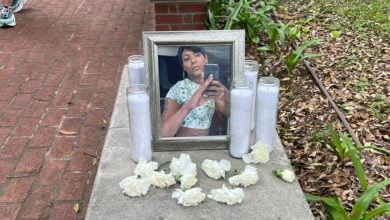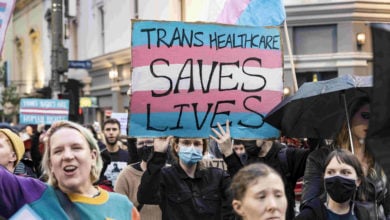The trend of court-related rulings in favor of civil rights for lesbian, gay, bisexual and transgender people took another significant step forward on May 31 as the United States Court of Appeals for the First Circuit unanimously ruled that specific parts of the bigoted 1996 “Defense of Marriage Act” are discriminatory and unconstitutional.
DOMA was passed by Congress in 1996 and was signed into law by President Bill Clinton in response to states beginning the process of legalizing same-sex marriage. Politicians serving the capitalist ruling class, which relies on bigotry to keep the working class divided and weak, were horrified at the growing strength of the LGBT movement and, as if in a panic, quickly passed legislation that strips legally married same-sex couples of 1,138 federal rights and benefits.
In its ruling on May 31, the court affirmed the lower court’s ruling that the definition of “marriage” and “spouse” in DOMA is unconstitutional.
While this ruling is a significant step forward for the marriage equality movement, and in line with other recent positive court rulings, it is on narrow grounds and does not overturn DOMA. The ruling applies only to states within the First Circuit—Massachusetts, Rhode Island, Maine, New Hampshire, plus Puerto Rico—and has been stayed pending appeal and the court’s belief that the U.S. Supreme Court is likely to take up the issue.
This ruling does not take up the portion of DOMA that stipulates that states where same-sex marriage is not legal cannot be required to recognize same-sex marriages performed in other states, which was not at issue in the appeal. A central dispute around the right of same-sex couples to marry is whether states, rather than the federal government, can determine their own policies on this issue; in other words, whether individual states have the right to discriminate against LGBT people by denying them basic civil rights.
During the struggle of Black people and their supporters for an end to racist Jim Crow discrimination, the idea of so-called “states’ rights” was used as an excuse to uphold policies of discrimination and racist violence. Similarly, the heart of the issue for LGBT people now is the question of federal jurisdiction over violations of civil rights.
Myriad of legal challenges
The two cases covered by the First Circuit Court of Appeals ruling—Gill v. Office of Personnel Management and Massachusetts v. United States—are just two of many challenges to DOMA being waged across the country. There is currently another case on appeal in the Ninth Circuit, and there are several focusing on the application of DOMA to service members and veterans, and to immigrants.
In states across the country, the issue of same-sex marriage is also being taken up by lawsuits.
In February, the Ninth Circuit Court of Appeals affirmed that California’s Proposition 8 is unconstitutional, upholding the ruling by the Federal District Court that had overturned it in 2010. The anti-LGBT forces that passed Prop. 8 have asked a wider panel of the Ninth Circuit to review the case. The full Ninth Circuit must now vote whether to rehear the case en banc, which means by the full panel of judges.
On May 30, the day before the First Circuit ruling, two lawsuits were filed against the clerk of Cook County in Illinois asserting that the denial of marriage licenses to same-sex couples violates their rights to due process and equal protection under the state’s constitution. Cook County is the largest county in Illinois, and the second most populated county in the U.S.
The Cook County Clerk has since made a statement in support of same-sex marriage, and Illinois’ attorney general has filed a notice with the Cook County Circuit Court stating that it will present legal arguments in support of these cases, also asserting that the statutory ban on same-sex marriage is unconstitutional in the state. Civil unions were legalized in Illinois in 2011, but the state has maintained a statutory ban on marriages since 1996.
The struggle continues
This ruling, like other recent rulings, reflects a strong advance of the LGBT movement and its allies in the working-class struggle for unity against racism, sexism and anti-LGBT bigotry.
Since the Stonewall uprising in New York City in 1969, the broad and street-based movement for LGBT equality has been tenacious and militant. Recent significant victories and steadfast determination by the movement and its supporters have forced the capitalist ruling class to grant concessions and pay lip-service at least to the call for an end to discriminatory policies and hate-mongering and, in some cases, to recognize that same-sex marriage is a civil right.
The Equal Employment Opportunity Commission recently announced that it would enforce laws against discrimination in hiring directed at transgendered people.
President Obama’s recent announcement that he now “personally” supports the right of same-sex couples to marry is very significant, even though he failed to take any action on the issue and said that it is still up to individual states. This has nevertheless prompted many political individuals and organizations, including the NAACP, to come out in favor of marriage equality.
On the other side, the right wing continues to step up its attacks on LGBT people. Anti-LGBT violence, whipped up by bigots being funded by right-wing forces and mainly directed at LGBT youth and transgender people, has risen dramatically throughout the United States. There has also been a sharp increase in suicides by LGBT people, mainly youth, as a result of anti-LGBT violence, hate speech and bullying. In the face of this, however, the movement continues to fight back and win supporters throughout the working class.
The National Coalition of Anti-Violence Programs has just issued a report on “hate violence” against LGBT and HIV-affected communities that took place in 2011. While the report shows a decrease in “hate violence incidents,” it shows an increase in murders. NCAVP documented 30 murders in 2011, the highest number they have ever recorded. It found that 26 of the 30 documented murders were of people of color, and 12 of the 30 were of transgender people. The report also found that people between ages 18 and 30 were almost 2.5 times as likely to experience physical violence as those 30 and older.
Concessions such as the recent ruling will without doubt fuel more resistance and intensify the movement for justice. Progressive court rulings are only the result of the independent mass movement that, instead of waiting for capitalist politicians to stand up to history, will stay strong and keep fighting until full equality is won.





